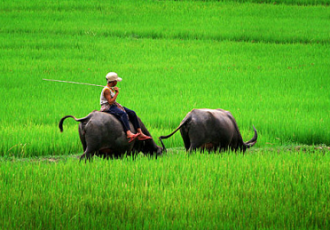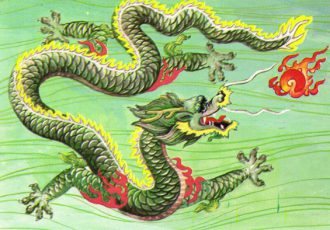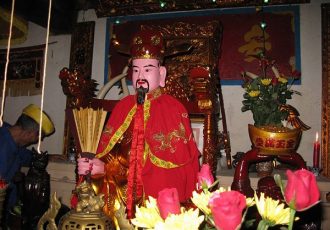A belief respected by all Vietnamese
Ancestor worship in Vietnam is one of the most salient features of Vietnamese spiritual life. It is practised throughout the country and by all Vietnamese, regardless of their social affiliation or political ideology.
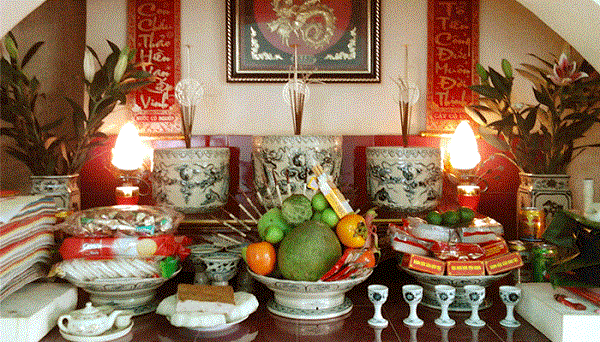
The purpose of ancestor worship is to perpetuate as intense an emotional bond as possible, inseparably linking the living and the dead of the same clan. Its purpose is the maintenance of the tombs, but especially the worship that must be rendered in the family temple of the four ascending generations represented on tablets. Nowadays the tablets include the name and portrait of the deceased. On the day of commemoration of the ancestors, the graves are redecorated and all members of the family must gather in the ancestral home to show their gratitude and to strengthen the family bond by sharing a meal. Gradually, the tablets of the oldest generations are buried under the floor of the temple.
The Altar of Ancestors for Ancestor Worship in Vietnam
The altar of the ancestors can occupy an entire room in large houses or the main span in companion houses. It is usually a board fixed to the wall or a fairly high table where the photos of the deceased are deposited, one or more bowls for incense chopsticks, two candlesticks, and sometimes a small perfume burner.
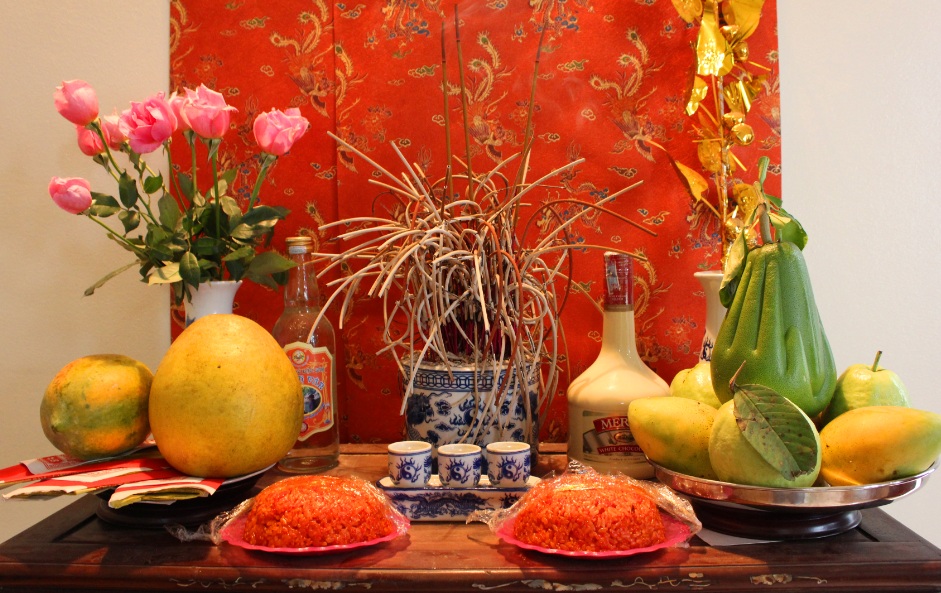
The relationship between the living and the dead
In order that the cult of the ancestors can be celebrated with dignity, a part of the clan’s heritage known as incense and fire is reserved for the heir, who has the usufruct.
In the family, the worship of deceased parents is generally assumed by the sons, particularly the eldest son. Daughters are only allowed to attend to the ancestral altar if they have no brothers. This is why the Vietnamese, encouraged to have a maximum of two children, prefer to have two sons rather than two daughters, two children of different sexes being ideal. This is also why many Vietnamese divorces, or are tempted to commit adultery, in an effort to leave a man to look after their souls and perpetuate their memory after their death. If someone dies without leaving descendants, he will have no altar to return to among the living and his soul will be condemned to eternal wandering. The greatest curse for a Vietnamese is therefore to die without leaving any children. The solution, in this case, is to adopt a child or to donate his estate to Buddhist pagodas or communal temples which will ensure his posthumous worship in return.
In the minds of the Vietnamese, there is no separation between the world of the living and that of the dead. Thus even an ascendant who has been dead for several centuries still haunts the altar of the ancestors. He returns among the people on the feast days and anniversaries of his death. He follows his descendants in their daily lives and is able to be aware of what they are doing. He thus shares their sorrows and joys, he is unhappy when their descendants do harm, and he is proud when they do good. This is how the Vietnamese sacrifice their ancestors on the occasion of all the great events of the family.
Birth of a child, the beginning of studies, success in the exam, engagement, marriage, mourning, long trip…
They are symbolically sent all the comforts of earthly life, burning paper objects for them: clothes, hats, wardrobe, bed, car, motorcycle and even US dollars, false of course, etc.
So that the ancestors worship can be worthily celebrated, a part of the clan is reserved in the heritage called incense and fire whose heir to the usufruct.
In the family, the worship of deceased parents is usually assumed by the sons, and in particular the eldest son. Girls are only allowed to take care of the altar of their ancestors if they have no brothers. Thus, the Vietnamese, encouraged to have two children at most, prefer to have two sons than two daughters, two children of different sex being ideal. This is also how many Vietnamese divorces, or let themselves be tempted by adultery, in this effort to leave after their death, a man to take care of their soul and perpetuate their memory. If someone dies without leaving descendants, he will have no altar to return to among the living and his soul will be condemned to eternal wandering. The biggest curse for a Vietnamese is to die without leaving children. The solution, in this case, is to adopt a child or donate his heritage to Buddhist pagodas, to communal temples that will ensure in return his posthumous worship.
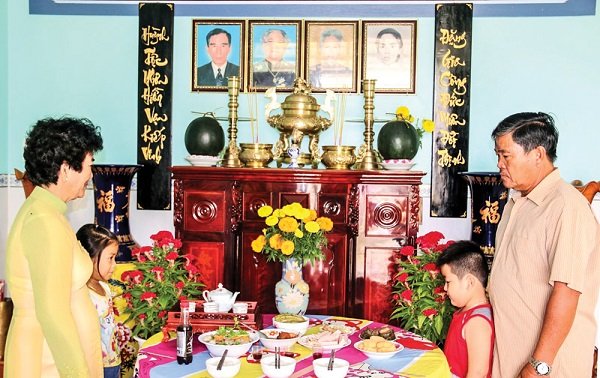
For it is not only death but also a ritual that opens the way to future life. Rituals alone and not death can be the transfer of life or power that the dead person needs. Through ritual, Vietnam believes in the dead, while the West believes only in death.
On Lunar New Year’s Eve, at midnight, the most solemn ceremony of ancestor worship is held.
The spiritual life of the Vietnamese, then as today, is shaped by the cross-influence of several beliefs and religions: Ancestor worship, Buddhism, Confucianism, Taoism, Christianity, Islamism, etc.
Consult our section on religions in Vietnam to deepen your knowledge.

